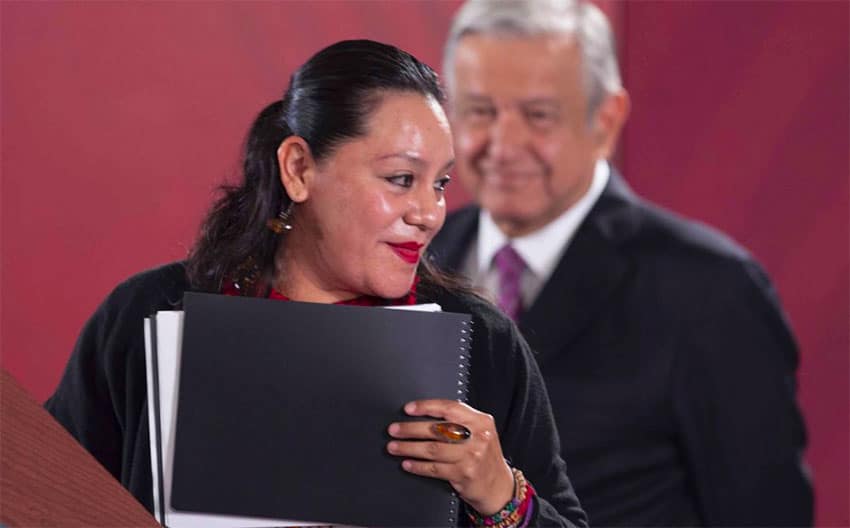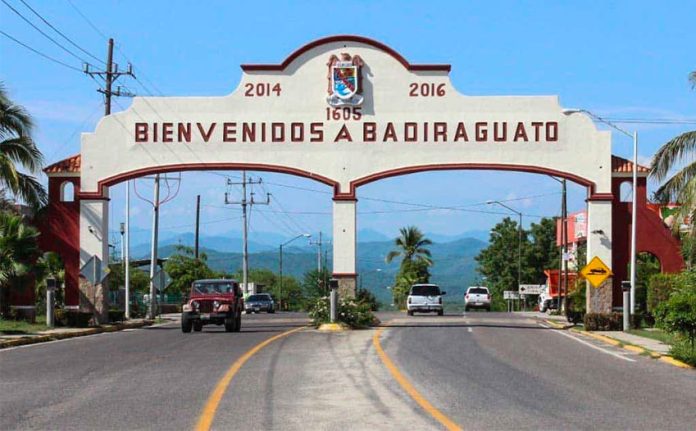The federal government will extend its agroforestry employment program to parts of the country where illicit crops are grown, such as Badiraguato, Sinaloa, the birthplace of convicted drug trafficker Joaquín “El Chapo” Guzmán.
President López Obrador said on Wednesday that the decision to expand the Sembrando Vida (Sowing Life) tree-planting program to such areas was made because the government has seen that farmers are willing to give up growing illicit crops and cultivate legal ones, such as corn and beans, instead.
The president also highlighted the success of the program to date, stating that timber-yielding and fruit trees have already been planted across more than 500,000 hectares by over 200,000 people.
“It’s the largest job creation program in the country, possibly in the history of Mexico, not just in the countryside . . . never were 200,000 workers hired in one program in one year . . . It’s definitely the best [program] of its kind in the world,” López Obrador said.
He said the program’s budget will increase to just over 25.1 billion pesos (US $1.3 billion) in 2020 from 23 billion this year, and that the aim is to provide employment for 400,000 people and plant trees on one million hectares.

“Why abandon the countryside?” López Obrador asked.
“Why do the campesinos have to go to try to make a living elsewhere . . . on the other side of the border, if they can do it in their communities? It’s a paradox, it’s a contradiction to have natural resources, wealth, with people who are poor due to abandonment, due to a lack of attention to the countryside. So, we’re going back to the countryside, that’s helping a lot,” he said.
People employed by the Sembrando Vida program are paid 5,000 pesos (US $255) per month.
López Obrador highlighted that the government is also supporting similar tree-planting programs in Guatemala, Honduras and El Salvador as part of a strategy to reduce migration.
Welfare Secretary María Luisa Albores, who has responsibility for Sembrando Vida, said the program will be extended to municipalities in the Golden Triangle, a notorious drug producing region that extends across parts of Durango, Sinaloa and Chihuahua.
She said the program has already had success in the Durango municipality of Topia.
“We were at an ejido [agricultural cooperative] in the Topia valley, where all the land was covered with drugs,” Albores said.
“Today the people tell us that it has decreased, that 90% of people are working on the Sembrando Vida agroforestry system. Between 5% and 10% are still sowing illicit crops, I’m talking about [opium] poppies and marijuana, but that’s going down . . .” she said.
Albores said that 229,091 people are registered in Sembrando Vida, a figure that represents 99.6% of the government’s target to create 230,000 jobs through the program this year.
She explained that it is operating in 362 municipalities in eight states, and that one in three people planting trees are women.
The Welfare Secretariat has an agreement with the Secretariat of National Defense to supply it with 100 million saplings that are grown at 12 army-run nurseries, Albores said.
Mahogany, cedar, cacao, rubber, cinnamon and soursop are among the trees currently being planted.
Source: Milenio (sp), El Financiero (sp)
